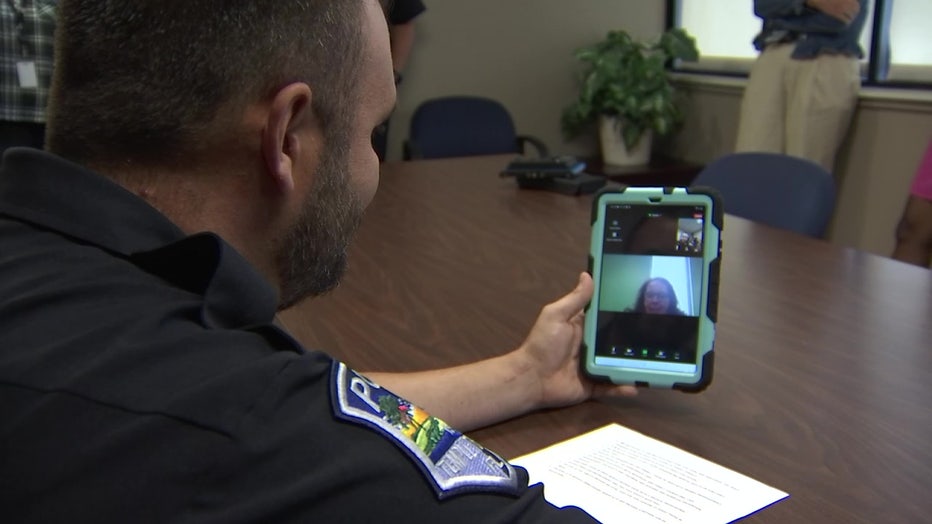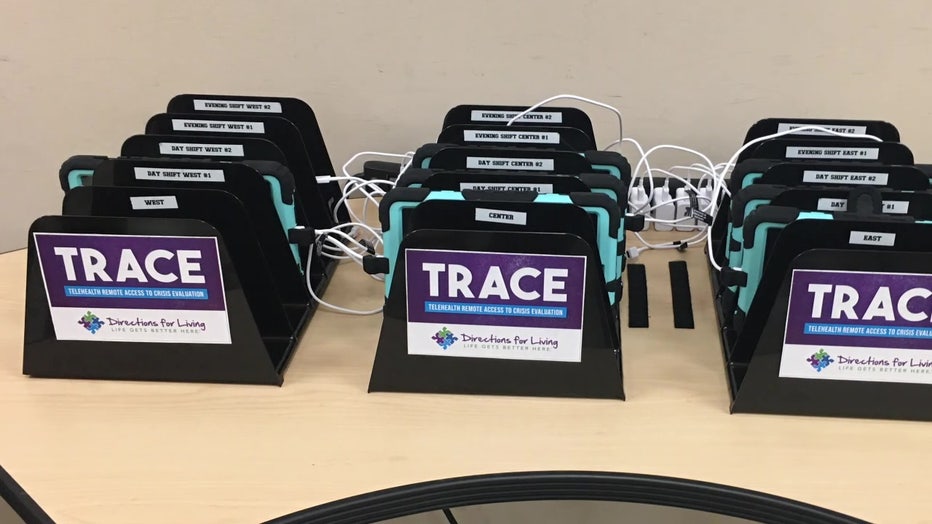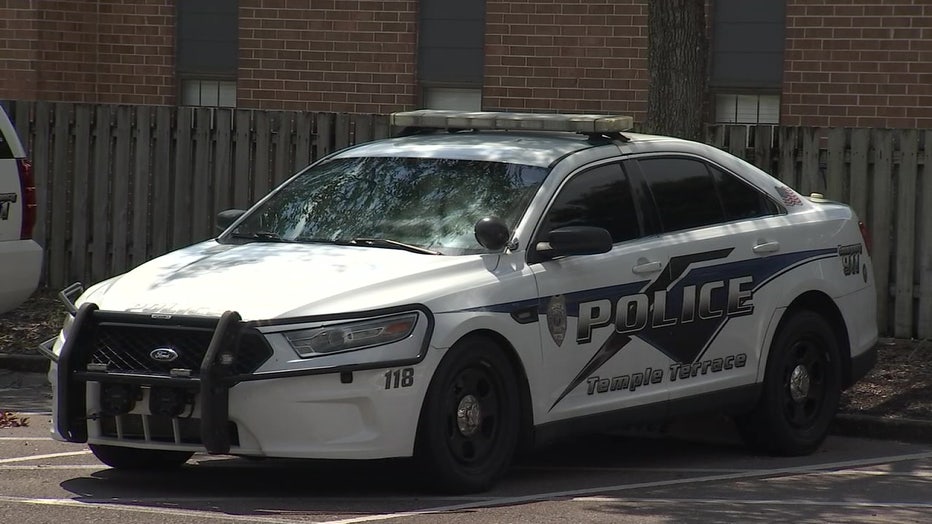Temple Terrace PD uses remote telehealth program to help with mental health calls
TEMPLE TERRACE, Fla. - Temple Terrace police officers have a new way to help residents in a mental health crisis, using a remote telehealth program.
Officers now show up to mental health-related calls with a tablet and can connect people with a doctor on the other end, and they said it’s making a big difference in their small department. The department recently joined the TRACE program with Directions for Living in Pinellas County, which helps law enforcement agencies respond to mental health calls.
"So we've had about 20 deployments to tablets in the last two weeks, so it's quite a bit," said Deputy Chief Rob Staley of the Temple Terrace Police Department.
With 53 officers on staff, TTPD does not have the same resources as larger agencies.

"It's a huge thing for us. I mean, to have this tablet in this program, it helps us with a lot of different aspects," said Capt. Chris Mills with the department.
MORE: New Lakeland Regional facility aimed at better serving behavioral health patients
Temple Terrace police said it helps to have someone at the touch of a button.
"We receive a lot of training, especially nowadays in mental health counseling, but we're not as experienced as maybe a trained clinician would be," said Staley. "What we've noticed is that people are being more open, and they feel more comfortable talking with somebody that has a background as a medical professional."

Police said the conversations usually lasts 5-15 minutes. As soon as the counselor pops up on screen, officers said that one-on-one time helps on several fronts.
"I've talked to the counselors, and they do a great job with deescalation," said Mills. "They also cut back on unnecessary Baker acts and things like that for us."
Directions for Living director and CEO April Lott said Temple Terrace police is the fifth agency to join their program.
READ: 'His demeanor is perfect': PSO therapy dogs help deputies with mental health-related calls
"Oftentimes people are calling the police, because they don't know what else to do," said Lott. "So we want to get people connected to mental health services so that they don't ever need to call the police when they're in trouble."
Lott said a mental health crisis needs a mental health expert.
"We do not need to send 10 police cars with guns drawn. For people who are experiencing a mental health crisis, we need to send clinicians and people who are kind and compassionate and trained," said Lott. "We can get people connected to psychiatric medicine management and medicine monitoring, getting them on the meds they need and getting them connected to a counselor despite or in spite of the fact that they don't have insurance, or they don't have the ability to pay for services."

Temple Terrace police said the program is a resource they hope to keep around for good. It also connects residents in crisis with other community resources they may need once the brief conversation is over.
"It's not one of those things where, after that call, we never see them again. So we do follow up with that," said Mills. "It's been working out really good."
Temple Terrace Police Department is the only law enforcement agency in Hillsborough County so far to use the program. Directions for Living said the department has a two-year contract for 10 tablets. Deputy Chief Staley said those tablets are divided up among day and nightshift officers and their community liaison unit.


